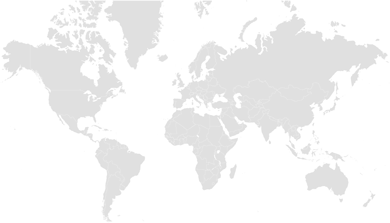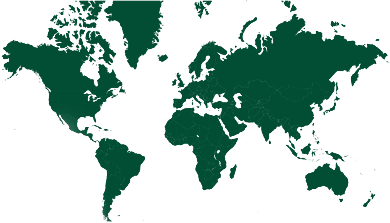Games
2023 • SLU – Swedish University of Agricultural Sciences RECLAIM – A serious game for resource recovery in sanitation systems
The RECLAIM game is a strategy-focused analogue board game designed to support sanitation planning with an emphasis on resource recovery. It introduces players to the interconnected challenges of managing sanitation systems while showcasing the potential for resource recovery. Through role-playing, the game fosters collaboration, understanding, and strategic thinking among planners, stakeholders, and decision-makers. Players assume key roles such as housing, treatment, and farming, simulating the creation of sanitation systems and exploring outcomes such as nutrient recovery, disease, and environmental impact. The game includes a digital add-on in Microsoft Excel for post-game visualization and reflection.
Recovered Materials & Products
Nutrients
Fertilizer
Compost
Waste Streams
Faecal sludge
Wastewater
Confirmed countries
Germany


What is this tool intended for?
The RECLAIM game is designed to introduce planners, policymakers, and students to the principles of resource recovery in sanitation systems. By emphasizing the interconnected nature of sanitation service chains, it highlights both the challenges and opportunities involved in recovering resources such as nutrients while minimizing environmental and health risks. The game provides a collaborative environment where participants can explore different sanitation options and gain insights into sustainable sanitation planning.
How does this tool work?
RECLAIM is an analogue, role-playing board game designed for four players, accompanied by an Excel-based digital add-on for analysis. Players take on specific roles representing different aspects of sanitation systems, including housing, treatment, farming, and private contracting. Over four rounds, they collaboratively construct and manage a sanitation system, making strategic decisions that affect system performance and sustainability. The game board is modular and adaptable, allowing for its use in diverse urban and rural contexts.
Key mechanics of the game include resource dice, which simulate waste-to-resource transformations, chance cards that introduce unexpected disruptions or innovations, and technology cards that present different sanitation options. The digital add-on allows facilitators to document player actions and generate visualizations of the outcomes for post-game reflection and learning.
Who might use this tool and with which types of stakeholders?
RECLAIM is valuable for a range of users involved in sanitation planning and decision-making. It is particularly relevant for planners and policymakers seeking to understand resource recovery in sanitation management. University students and educators in fields such as sanitation, engineering, and urban planning can use the game as a teaching tool to explore real-world sanitation challenges. Additionally, the game is useful for stakeholders across the sanitation service chain, including utility managers, treatment plant operators, and farmers, who can use it to understand their role in resource recovery and identify potential collaboration opportunities.
What stages of a process can this tool support?
The game can be used in various stages of sanitation system development and decision-making. It is particularly useful in the planning phase, where players can explore different sanitation options and identify resource recovery solutions. It also supports collaborative decision-making by engaging multiple stakeholders in discussions about sanitation technologies and system design. Furthermore, it serves as an educational tool, providing a hands-on approach to training future professionals in resource recovery strategies and stakeholder perspectives.
What skills, capabilities, and resources are required to use this tool?
Playing RECLAIM requires only a basic understanding of sanitation systems, making it accessible to a wide range of users. Facilitators leading the game should have some experience in guiding discussions and managing collaborative learning exercises. To run a game session, players will need the RECLAIM game set, which includes the board, pieces, and cards, as well as a facilitator guide to assist with gameplay. A dedicated space is required for the game to be played effectively. Additionally, the Excel-based digital add-on can be used to analyze and visualize post-game results, allowing for deeper reflection on the decisions made during the game.
Where can this tool be used?
The RECLAIM game is suitable for a variety of settings where sanitation planning and resource recovery discussions take place. It can be used in workshops focused on urban planning and sanitation management, providing stakeholders with an engaging way to explore sanitation options. Universities can integrate the game into academic courses related to sanitation, engineering, and circular economy principles. It is also useful in community meetings, where it can raise awareness about resource recovery potential and encourage public participation in sanitation planning.
Case examples of where this tool has been used
RECLAIM has been tested in different real-world contexts to facilitate stakeholder engagement in sanitation planning. In Kampala, Uganda, the game was used with sanitation planners to explore decentralized sanitation solutions for areas with low sanitation coverage. In Sweden, it has been played as part of stakeholder engagement efforts focused on transitioning towards resource-recovery sanitation systems. These case studies demonstrate the game’s ability to foster discussions on sustainable sanitation planning in diverse contexts.
Get the Tool
The game materials are publicly accessible to print and use on open access basis.
https://www.slu.se/en/departments/energy-technology/projects/kretslopp/reclaim/
Learn more
McConville, J. R., Billger, M., Niwagaba, C. B., & Kain, J. H. (2023). Assessing the potential to use serious gaming in planning processes for sanitation designed for resource recovery. Environmental Science & Policy 145: 262-274.
https://doi.org/10.1016/j.envsci.2023.04.002
Kain, J-H, McConville, J. & Billger, M. (2021). Serious games in support of transformative multi-stakeholder sanitation planning for increased resource recovery: Specifications for game development. Chalmers University of Technology, Department of Architecture and Civil Engineering, Gothenburg, Sweden.
https://research.chalmers.se/publication/?created=true&id=7b18bdec-b318-4f33-93c6-e4ed5485af34
Billger, M, Kain, J-H, Niwagaba, CB, & McConville, JR. (2020). Lessons from co-designing a resource-recovery game for collaborative urban sanitation planning. IOP Conference Series: Earth and Environmental Science, 588 (2020) 042041
https://doi.org/10.1088/1755-1315/588/4/042041
Webinar with a demonstration and explanation about the RECLAIM game
RECLAIM - a collaborative resource-recovery game for urban sanitation planning
Technologies
Composting
Anaerobic digestion
Vermicomposting
Themes
Assessment
Design
Capacity building